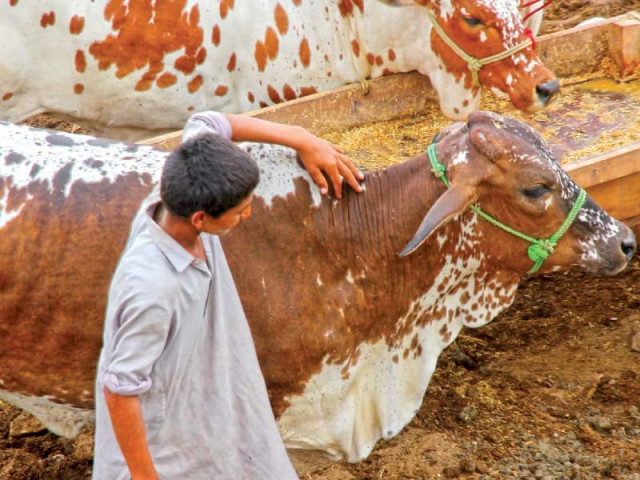Congo virus cases on the rise
AKUH reports 16 patients admitted to hospital so far

A patient with Congo virus has been admitted to a private hospital in Karachi, raising alarm bells for the provincial health department, which has initiated medical tests for the patient's family members.
According to details, a 42-year-old resident of Gulshan-e-Iqbal, Farrukh Bari, was admitted to a hospital two days ago with a high fever and other Congo virus-related symptoms. He was kept in isolation at the hospital, and the laboratory report from Aga Khan University Hospital (AKUH) has confirmed that he has contracted Congo virus.
According to District Health Officer Dr. Shakeel Qureshi, the samples for medical tests of the patient's family members have also been sent to the laboratory for evaluation to ascertain potential spread of the infection.
Read Karachi sets up Congo unit to deal with virus
Sources at the AKUH said that five more patients with symptoms of the virus were admitted to the hospital on Wednesday, increasing the number of affected patients at AKUH to 16. Furthermore, one affected patient on Wednesday tested negative for Congo virus.
Meanwhile, AKUH spokesperson Shabbir Alam has denied that the messages circulating on social media and WhatsApp regarding need for platelet donations was issued by Aga Khan Hospital. "AKUH operates its own blood bank, where platelets are provided to hospitalized patients as needed," he confirmed.
According to Dr Saqib Ansari, a haematologist, the Congo virus directly affects the bone marrow's platelet-producing cells, causing a decrease in platelet counts in the body. He mentioned that human blood consists of three types of cells: red blood cells (RBCs), which provide energy to the body; white blood cells (WBCs), which protect the body from various infections; and platelets, which aid against blood clotting.
Dr Ansari stated that in the case of an infection like the Congo virus, platelet counts decrease rapidly in affected patients.
Also read Congo virus outbreak
In a normal human body, platelet counts range from 400,000 to 500,000, but the Congo virus directly affects the bone marrow, leading to a significant reduction in platelets. The bacteria associated with the Congo virus consume human platelets.
Dr Ansari added that when a patient's platelet count drops to 30,000, platelet transfusions are immediately required. A decreased platelet count in affected patients can result in bleeding from the gums and nose, and visible red spots on the body are considered extremely dangerous.
Published in The Express Tribune, November 9th, 2023.



















COMMENTS
Comments are moderated and generally will be posted if they are on-topic and not abusive.
For more information, please see our Comments FAQ